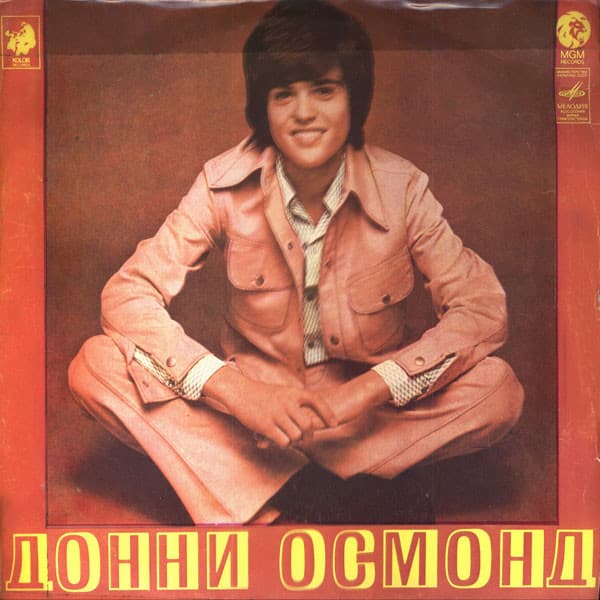
The Innocence of a Name: When a Teen Idol Revived a Rock and Roll Tragedy
For those of us who came of age with the music of the 1970s, Donny Osmond was the ubiquitous soundtrack to our adolescence. He possessed a rare gift: the ability to take classic songs, polish them until they gleamed, and present them anew to a generation eager for genuine, heartfelt romance. This is precisely what he did with his cover of “Donna,” a song released on his 1972 album, Too Young. The choice of this track, in particular, was significant, as it reached back across the decades to pay homage to one of rock and roll’s most poignant origin stories.
Released on July 15, 1972, on the MGM/Kolob label, “Donna” was not issued as a primary single in the United States, allowing other hits from the album, such as “Too Young” and “Why,” to dominate the Billboard Hot 100. However, the album Too Young itself was a major commercial success, peaking at Number 11 on the Billboard 200 chart and reaching Number 7 on the UK Albums Chart, proving that every song Donny touched turned to gold. His ability to anchor his albums with familiar, timeless material like “Donna” was key to sustaining his momentum during his peak teen idol years. The song was a subtle, yet powerful, connection to the very foundation of rock music.
The profound, emotional story behind “Donna” belongs to its original creator, the tragically short-lived pioneer Ritchie Valens. Valens wrote the song as a deeply sincere ode to his real-life high school sweetheart, Donna Ludwig. It was his heartfelt, soulful declaration of love, released just months before his death in the infamous 1959 plane crash, a tragedy immortalized as “The Day the Music Died.” Valens’ original version, a tender doo-wop ballad featuring his slightly rough, incredibly emotive vocal, reached Number 2 on the Billboard Hot 100 chart, making it his highest-charting single. The song’s meaning is therefore pure and simple: an enduring, almost prayer-like testament to first love.
Donny Osmond’s interpretation transforms the track from a raw, garage-rock ballad into a smooth, orchestrated pop gem. The signature of his early 70s sound—the polished production helmed by Mike Curb and Don Costa—is evident. Donny’s impeccable, clean delivery and perfectly controlled vocals strip away some of the original’s raw anguish, replacing it with a sweeter, more accessible romantic yearning that resonated powerfully with his young, devoted fan base. In his hands, the song became less a memorial to a tragic hero and more a universal expression of puppy love, perfectly aligning with his teen image.
For those who lived through the transition from the 50s to the 70s, Donny’s cover serves as a nostalgic reminder of how pop music recycles and refines its great melodies. Hearing that recognizable chord progression—the famous “’50s progression”—rendered through the clear, comforting tones of Donny Osmond felt like a connection to a simpler, more innocent time. It reminds us that even at the height of his fame, Donny understood that the best kind of pop music is built on timeless, universal feelings, and the name Donna, sung with such sincere, adolescent longing, remains a tender echo of those golden days.